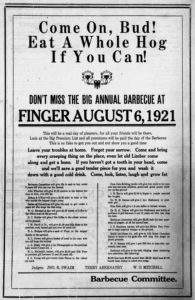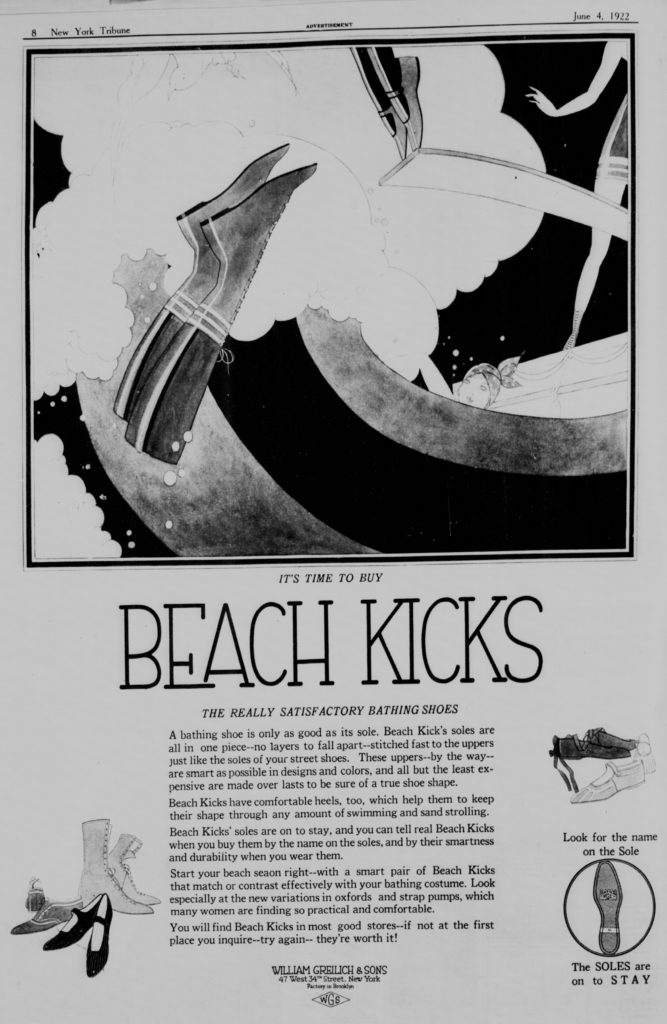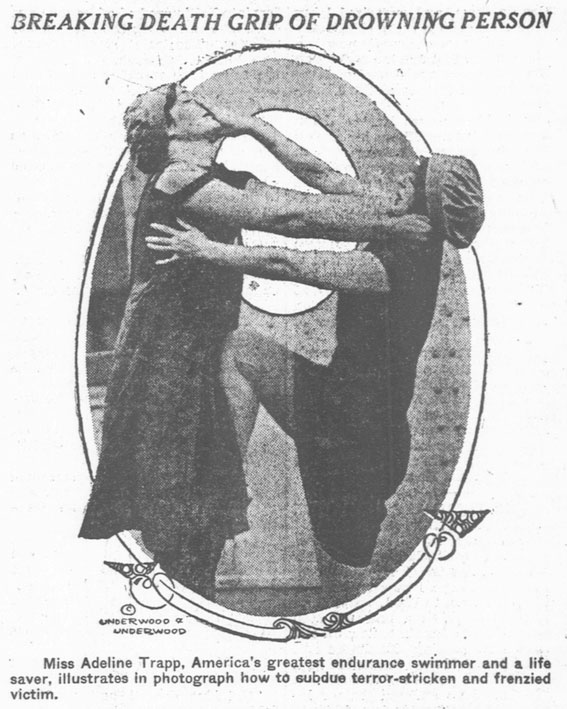Have a drink with: Bathing Suit Lizards
Stockingless bathers!
Ask them about: Beachy fun, pig roasts, union cosplay.
If you’re thinking about ways to enjoy your summer, rest assured: the past can help. As it turns out, just like you, people in the early 20th century spent plenty of time thinking about things like bathing suit fashions, picnic etiquette, kid-friendly outings and water safety.
Bring the Kids!
At the annual Asbury Park Baby Parade in 1919, 75,000 people attended the annual pageant, complete with carriages, floats, pony carts, a Tom Thumb wedding and, for the first time in the history of the parade, an official contribution by New Jersey itself: the state being officially represented by two floats courtesy of the Bureau of Child Hygiene, “one a symbolization of the mother State protecting the children, the other a humorous float depicting ‘A Strike in Babyland.”
Paternalism! Tiny Teamsters! Ponies!
So. On to barbecue?
Come On, Bud! Eat A Whole Hog If You Can!
“This is no fake.” In fact, it’s pulled pork with a side of domestic sideshow: the August, 1921 hog roast in Selmer, Tennessee, also included games and prizes to keep everyone entertained, including awards for the “fastest fat man on foot,” the oldest man and woman present, the loudest hog call, and the oldest old maid. Because nothing entertains the folks back home like mocking old spinsters and making a portly man run for a necktie.
Perhaps most confounding: “J.E. Stephens, barber, will give box Melba Face Powder to least married woman on the ground.” Now, given the other prizes for things like “largest family” and “couple married the longest,” one assumes that “least married” is a clunky way of referring to the newest of newlyweds; but you’d be excused for thinking it sounds like we’re trying to reward the couple with the most, uh, flexible arrangement.
Can’t You Sunbathe in an Overcoat Like God Intended?
And speaking of flexible, the scandal of Rye, New York, in the summer of 1919, was a surfeit of salacious sunbathers – nicknamed “bathing suit lizards.” A lizard, explains the Washington Herald, “is a young person, male or female, who, like the darling daughter of the immortal doggerel, hangs up his or her clothes on a hickory limb – but carefully refrains from going near the water. The ultra modest have asked their chief of police to eliminate the allurements of the water nymph and of at least the female of the species of the bathing suit lizard – doubtless on the ground that it is deadlier, because far more beautiful, than the male.”
Ok, So What Are We Supposed to Wear, Then?
Next.
How To Rescue A Chauvinist From Drowning.
In summer 1913, Miss Adeline Trapp competed in a swimming contest against thirty U.S Volunteer Life Savers, and was the “only woman to arrive at the finish of the twelve mile swim through ‘Hell Gate,’ arriving in fifth position and beating the hardened male veterans of the Life Saving Corps.”
A swim teacher and lifeguard, Trapp “is instructor at the free public baths patronized by the women and children of the poor of New York, and supervises the instruction of over half a million women and children during the three hot months of summer.” Wearing a bathing suit of her own design, Miss Trapp did not mess around, and apparently had more than one way to assist the women of New York. Faced with a drowning man, her method “is to shut off the breath of the frenzied victim at the nostrils and the wind-pipe. The pressure on the abdomen assists in relaxing the body and after that it is easy for the rescuer to take the one in danger ashore.”
You knock that sh*t OUT, Miss Trapp.
Additional Reading:
Courtesy the Library of Congress’ wonderful database, Chronicling America:
Baby Parade: The New York Sun, August 28, 1919
BBQ!: The McNair County Independent, July 22, 1921
Bathing Suit Lizards: The Washington Herald, September 19, 1919
Beach Kicks: The New York Tribune, June 4, 1922
Adeline Trapp: The Day Book, August 8, 1913



